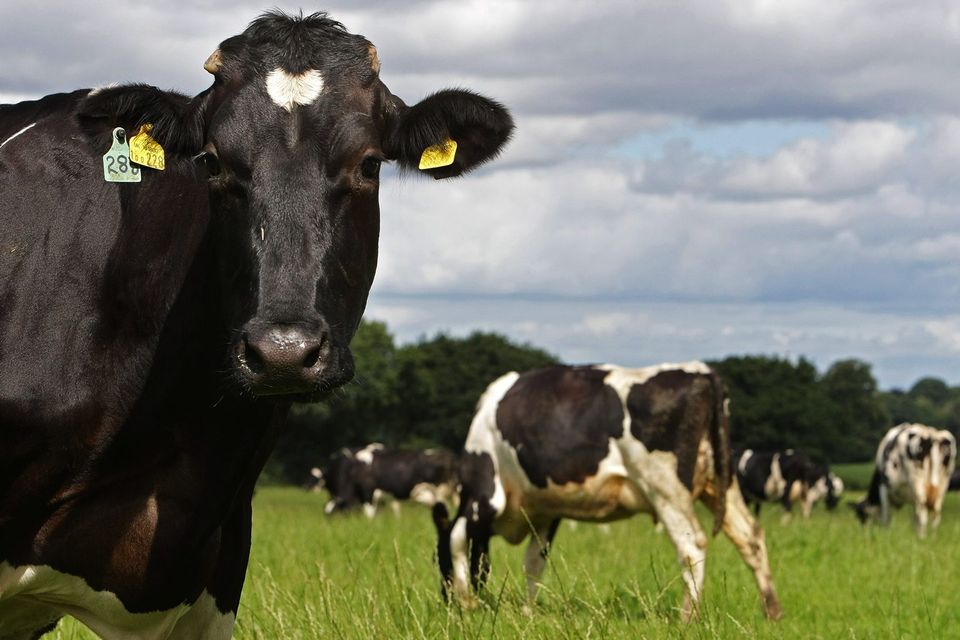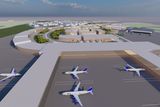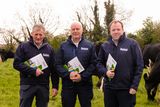Irish farmers' exports can help feed growing world population
Agri-food is our biggest sector with an output of €25bn last year and exports worth over €10bn (Stock photo)
In less than a decade, the world's population will be eight billion, up over 500 million on the current level. This poses a huge challenge for food producers on a planet which already finds productivity, land availability and climate change an obstacle to meeting need.
Ireland is a world leader in food production and can export its produce, technology and expertise to help feed a population which could rise to nine billion by century's end.
Exporting globally will become an even more important facet of the economy going forward, and - allied to supporting companies' innovation and competitiveness - is central to the national strategy for addressing the UK's vote to leave the EU. Following the referendum, Enterprise Ireland announced an extended schedule of international trade missions. Every region in the world will receive one or more visits from Irish trade delegations.
Agri-food is our biggest sector with an output of €25bn last year and exports worth over €10bn. The Food Wise 2025 strategy envisages increasing overseas sales by 85pc to €19bn - creating 23,000 direct jobs from primary production and valued-added products.
The growing preference in developed markets for premium, healthy, sustainably- produced foods adds further opportunity for an indigenous industry of huge strategic importance to Ireland. Agricultural exports have changed in the past decade, leaning away from food commodities towards packaged products that meet burgeoning demand in hugely populated countries like India and China.
Local processing and improved production efficiency is also on the agenda in these markets so agricultural technology, machinery and services add further value to Ireland's export offering.
Earlier this month, over 40 companies accompanied Minister for Agriculture, Michael Creed, and Minister for Food, Andrew Doyle, on an eight-day visit to China, South Korea, Singapore and Vietnam. It was one of Ireland's biggest agriculture trade missions ever. While increasing exports from agri-food and agri-tech was very much part of the mission, attracting foreign direct investment (FDI) into the food and beverage sector was also part of the remit.
Enterprise Ireland is responsible for FDI in this sector and active in the Asia-Pacific region, working with Irish companies to attract capital and R&D collaborations. Ireland's expertise and state-of-the-art ecosystem in food R&D is a significant attraction to Asian companies looking for a Eurozone hub to service Western operations and develop product lines.
A number of Memorandums of Understanding were signed during the trade mission including an R&D collaboration between Sanyuan Food Group in China and Teagasc, Moorepark.
Agri technologies are another priority sector for the region and present a significant opportunity for exports in the short- to medium-term.
Global agricultural production will need to double by 2050 to meet growing demand and governments across the developing world recognise that existing inefficient farming methods cannot be sustained, especially with parts of Brazil, Russia and USA likely to see big drops in production due to climate change in the coming years.
Productivity and automation is seen as a central to addressing this twin threat, playing strongly into Irish hands.
There are currently 26 Irish agri-tech companies active across Asia-Pacific with exports of around €35m and the potential to double this within five years. The majority provide solutions to inefficient and labour-intensive practices. Some of the leading companies in the region are McHale, Dairymaster, Keenan, Tanco and SAMCO. A number of their local partners participated in the mission.
China's growing dairy industry is a key focus area of opportunity with technologies that underpin Ireland's industry applicable to the Chinese.
Further opportunity comes in the form of EU Free Trade Agreements with South Korea, Singapore and Vietnam which are due to gradually take effect in the coming years.
The South Korean government also subsidises the purchase of agri-machinery, creating an additional incentive for Irish companies and there was an inward buyer visit from the country to the Ploughing Championships this week.
Indeed, in the week that saw the Championships take place, the public hardly needs reminded of the agri-food and agri-tech sector's critical importance to Ireland's economic well-being.
But, the fact is, Irish agriculture is crucial to the welfare of everyone on this planet.
Michael Cantwell is Divisional Manager in the Enterprise Ireland Food Business Unit
Join the Irish Independent WhatsApp channel
Stay up to date with all the latest news















